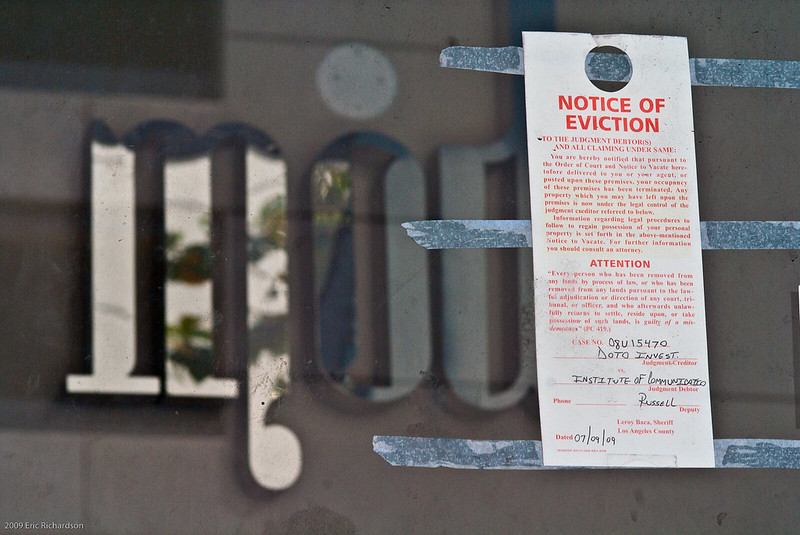Oregon’s housing agency wasn’t prepared to manage an emergency rental assistance program that spent $426 million during the COVID pandemic and still can’t determine how many Oregonians were helped by the money, according to a scathing new audit.
State auditors with the Secretary of State’s Office acknowledged that Oregon Housing and Community Services was working under unprecedented and unpredictable circumstances. Demand for rent assistance ballooned in the COVID pandemic, as one out of seven Oregon workers lost their jobs in spring 2020.
Read the report: OHCS Prioritized Providing Emergency Rental Assistance Funds to Oregonians in Crisis but Could Have Done More to Ensure Funds Were Properly Distributed
“There is no doubt OHCS, like all of Oregon government, was working under unprecedented emergency conditions during the pandemic,” Audits Director Kip Memmott said in a statement. “As auditors, it’s our job to ensure public monies are being spent in accordance with program guidelines and properly accounted for. It’s extremely concerning that OHCS is unable to verify whether millions of dollars went to the Oregonians who needed and deserved this money the most.”
The audit coincides with a housing crisis in Oregon, and at least 18,000 are homeless across the state. After taking office, Gov. Tina Kotek declared a housing emergency and persuaded lawmakers to allocate $1.2 billion toward housing and shelters in last year’s session. She wants them to approve even more in the upcoming session.
As part of federal pandemic relief packages, Oregon received about $500 million to help renters and landlords in 2021 and 2022, according to the report. The state housing agency was under pressure to spend that money quickly, as the federal government planned to claw back funds from state and local governments that hadn’t spent a significant portion of the money by September 2021 and reallocate it to other governments that had. Oregon received additional funding because other states failed to spend their portions.
OHCS used a portion of its funds to create a new state program and launched an online application through the software provider Allita in May 2021. After a growing backlog of applications in metro counties, the agency approved a contract in August 2021 with Massachusetts-based Public Partnerships to work on the backlog. The agency used contractors to vet applications and distribute funding.
A statewide eviction moratorium ended on June 30, 2021, and lawmakers approved a 60-day grace period from eviction for renters who had applied for rent assistance. But because of the application backlog, that grace period wasn’t long enough for thousands of renters, and lawmakers returned in a special session in December 2021 to extend the grace period so no one with a pending rent assistance application could be evicted. Lawmakers also requested an audit of the program.
Auditors noted that the agency experienced significant staff turnover between 2020 and 2022, and that the agency was focused on reacting to issues like potential fraud instead of having plans in place to protect from it. More than a year after the program ended, the agency still hasn’t conducted a full review of the program.
“As a result, the agency has no way of knowing how much of the $426 million went to eligible Oregon recipients and how much was sent to landlords, renters, and non-eligible recipients in error,” the audit report said. “The lack of verification also undermines the agency’s attempts to determine whether its equity-centered approach for Oregon ERA was successful in reaching people who have been historically and systematically excluded from housing opportunities.’
It also noted that agency leaders still didn’t know how many Oregonians were helped by the program.
“Since January 2023, OHCS reported several different numbers as program outcomes,” the report said. “The number of total applications paid has been reported as 56,320, 65,020 or over 67,500; the number of households assisted has been reported to be 51,320 or 51,744. When asked in November 2023 for the exact number, OHCS personnel indicated the final figures had not been calculated.”
Potential for fraud
Auditors heard from community action agencies, which distributed some of the funds, that they denied approximately $37 million in requests made by fraudsters. They also reviewed 61 randomly selected payments, totalling about $375,000, that were approved by the contractor Public Partnerships and found close to a 30% error rate. One incorrect landlord received $2,700 that hadn’t been recouped, and they found overpayments to other landlords and tenants. Based on that limited sample, auditors estimated the state may have misspent about $11 million.
They warned that Oregon Housing and Community Services needs to be prepared to respond to increased demand for rent assistance and housing needs.
“Housing-related emergencies are not expected to abate anytime soon: Homelessness in Oregon was declared an emergency in 2023, and agencies have been urged to prepare for the Cascadia Subduction Zone earthquake and tsunami, an event predicted to displace between 16,800 and 257,000 people in the Portland tri-county region alone,” the report said. “The agency’s success in responding to the current homelessness crisis and future emergencies depends upon its commitment to evaluating its recent actions and implementing needed improvements.”
The agency and its partners have been under pressure over the past several months to spend an additional tranche of $85 million in rent assistance tied to Gov. Tina Kotek’s homelessness declaration, and auditors noted that the current rent assistance program could suffer from the same problems as the pandemic program.
The agency’s budget has more than doubled in the past six years, going from a total budget of about $1.2 billion in the 2015-17 budget period to $2.9 billion in the biennium that ended in June 2023. And its responsibility will continue to grow: Kotek plans to seek another $600 million for housing and homelessness, including $33 million for rent assistance, during the legislative session that begins in February.
“OHCS leadership has told us on multiple occasions they view the program and any challenges it had as a one-time, emergency-only related occurrence,” the audit said. “We disagree with this perspective. The governor’s plans to address homelessness continue to add pressure on OHCS to ensure outcomes in a short amount of time.”
List of recommendations
Auditors made 16 recommendations to the agency, including creating a permanent independent ombudsman, developing more data analysis and creating internal programs to find fraud. The agency accepted half of the recommendations, partially agreed with six and disagreed with two, including giving an ombudsman the power to independently investigate programs.
The audit included a defensive response letter from agency Executive Director Andrea Bell, who stressed that Oregon Housing and Community Services faced an unprecedented challenge and helped tens of thousands of Oregonians keep their homes. Bell, the former director of the division that governed the emergency rent assistance program, was promoted to executive director in April 2022 after former director Margaret Salazar took a job with the U.S. Housing and Urban Development Department.
“Throughout two years of administering (emergency rental assistance), OHCS allocated more rental assistance than in the previous decade,” she wrote. “Additionally, 97% of those funds were delivered successfully, and the U.S. Department of the Treasury’s multiple reallocations of tens of millions of dollars from non-performing states to (emergency rental assistance), which far exceeded auditors estimates of questioned costs, was a vote of confidence in the agency and our partners’ work.”
Secretary of State LaVonne Griffin-Valade urged the agency to implement the audit recommendations.
“The urgency with which OHCS acted to distribute rental assistance during a global crisis is laudable,” Griffin-Valade said in a statement. “As auditors, it’s our job to ensure state agencies properly account for how they spend public money. I encourage OHCS to work speedily to implement the recommendations in this report in preparation for future emergencies.”
Oregon Capital Chronicle is part of States Newsroom, a network of news bureaus supported by grants and a coalition of donors as a 501c(3) public charity. Oregon Capital Chronicle maintains editorial independence. Contact Editor Lynne Terry for questions: [email protected]. Follow Oregon Capital Chronicle on Facebook and Twitter.
STORY TIP OR IDEA? Send an email to Salem Reporter’s news team: [email protected].

Julia Shumway is deputy editor of Oregon Capital Chronicle and has reported on government and politics in Iowa and Nebraska, spent time at the Bend Bulletin and most recently was a legislative reporter for the Arizona Capitol Times in Phoenix. An award-winning journalist, Julia most recently reported on the tangled efforts to audit the presidential results in Arizona.









